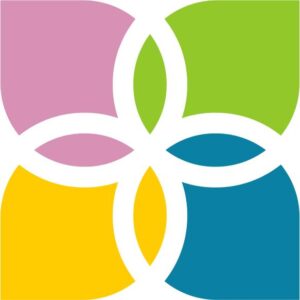
M4I
Funding Programme
ERASMUS+ KA2 - Strategic Partnerships for Adult Education
Duration
01/09/2023 - 31/08/2025
Budget
250 000 €
Countries
🇭🇺Hungary 🇪🇪Estonia 🇸🇪Sweden 🇩🇪Germany 🇵🇱Poland 🇬🇷Greece
Project Number
2023-1-HU01-KA220-ADU-000160977

Mindfulness for Integration
Refugees are people forced to flee from their home country for reasons such as war, violence or fear of persecution (UNHCR, 2018). The majority of refugees are repeatedly exposed to stress and traumatic events in their home country and during their journey to safer areas (Abu Suhaiban, Hiba et al., 2019). During resettlement they often face unemployment, loneliness and uncertainty about asylum and settlement procedures and the future (WHO, 2019). These factors may all contribute to the relatively high prevalence of mental disorders in refugees (WHO, 2019).
Studies have shown that mindfulness education (lessons on techniques to calm the mind and body) linked to creative output, thought and artistic activities can lead to a higher level of social engagement and reduce the negative effects of stress and increase peoples’ ability to stay engaged and focused, helping them stay on track academically and avoid behavioural problems (OECD, 2018). In Greece, for example, there are high rates of migration, almost 11% of the population are migrants and there is need for supportive actions and products to assist migrant groups and the professionals working with them, to safeguard their mental health to be able to participate in society. Refugees and asylum seekers have reported that engagement with the arts following forced displacement supported them in creating new support networks and developing practical skills that were useful in finding work (WHO, 2019). In both child and adult refugees, and asylum seekers, creative arts activities have been found to decrease anxiety, depression, post- traumatic stress disorders and peer problems (Tyrer, RA; Fazel, M, 2014). Despite the significant contribution of the cultural and creative sectors (CCS) to the economy and people’s wellbeing, the
situation of operators and workers in the sector is often precarious and their work seasonal and the outbreak of the Covid-19 pandemic particularly threatens the future of artists, creators and cultural operators (European Parliament, 2020). Some organisations benefit from public support (e.g. public museums, libraries, theatres) and may experience significant budget
shortfalls, but as in other sectors of the EU economy, the majority of cultural enterprises are SMEs employing three persons per enterprise on average (Eurostat, 2017), and due to the sudden and massive loss of revenue opportunities the smaller more fragile CCS organisations have been hit hardest (OECD, 2020).
- Ensure the specific mental health needs of refugees are understood to 50 support service workers in civil society organisations and local authorities
- Strengthen and support the mental wellbeing of 210 refugees through the work of the local CCS
- Increase civic engagements and active participation in society amongst refugees, asylum seekers and vulnerable migrants
- Upskill 70 CCS professionals to create creative wellbeing supportive learning material Promote social inclusion and diver
- Best Practice Handbook in the use of creative activities to support migrant mental health and social integration
- Professional Development Sessions for CCS Professionals
- M4I Blended Learning Course
- M4I Facilitator e-Course
- Mindfulness for Integration Awareness & Understanding Campaign
- Targeted Impact and Exploitation
Partners
- ARTEMISSZIÓ ALAPÍTVÁNY – Coordinator
- STOWARZYSZENIE CENTRUM WSPIERANIA EDUKACJI
- KAINOTOMIA & SIA EE
- Institute for Roma and Minorities Inclusion
- Cuiablue OÜ
- NORDIC DIASPORA FORUM
